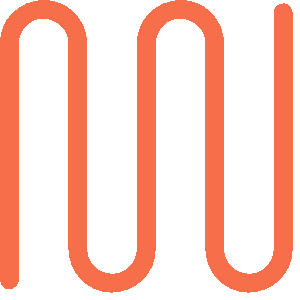What is Paid Search? Everything You Need to Know About Search Engine Marketing
When it comes to lead generation, organizations are spoiled for choice with a variety of channels at their fingertips. One standout option? Paid search. Think of it as a direct ticket to the top of search results, where your brand can rank highly on the precise queries you want to target.
Unlike waiting around for organic rankings to grow, paid search lets you jump straight to the good stuff: high visibility, relevance, and the potential for major lead generation.
What is paid search marketing?
Paid search marketing is a form of digital advertising where businesses bid on keywords to display their ads at the top of search engine results pages (SERPs). This strategy is typically referred to as pay-per-click (PPC) advertising because advertisers only pay when someone clicks on their ad.
Essentially, it’s a way for organizations to cut to the front of the line, getting prime search result real estate without relying solely on organic ranking efforts.
Why is PPC such a popular choice?
Simple: it's fast, effective, and, when done right, incredibly rewarding. PPC lets organizations handpick the exact keywords they want to appear for, giving them laser-focused control over their audience targeting.
The beauty of paid search lies in its immediate impact—you can start seeing your ads right at the top of search results shortly after your campaign goes live, capturing high-intent users who are already looking for the products or services you offer.
What platforms do companies use for PPC?
When it comes to pay-per-click advertising, Google Ads reigns supreme. As the most popular paid search platform, Google Ads holds the lion's share of the market, making it the go-to choice for companies aiming to reach a massive audience. With over 90% of global searches taking place on Google, advertising on this platform gives brands access to an enormous pool of potential customers actively searching for products, services, or solutions.
Beyond its reach, Google offers advertisers a treasure trove of tools for targeting, budgeting, and performance tracking. Brands can zero in on their ideal audience based on search intent, geographic location, demographics, and more, making it a powerhouse for highly tailored campaigns.
Additionally, Google’s ad format flexibility—including text ads, shopping ads, and display ads—allows companies to promote everything from products to promotions across different Google networks, including YouTube and partner sites.
Aug 26, 2024 | 6 min read
How Much Do Google Ads Cost to Run?
Paid Search

While Google Ads is the heavyweight champion, other platforms like Bing Ads and even social platforms such as Facebook and LinkedIn offer PPC options that companies sometimes incorporate as complementary channels. However, for sheer reach and impact, Google Ads remains the top choice in the paid search world.
What are the features of a successful paid search campaign?
A successful paid search campaign isn’t just about setting up ads and hoping for clicks—it’s a strategic approach that involves several essential ingredients. Here’s what it takes to make a paid search campaign truly effective:
- Bidding strategy: A well-chosen bidding strategy is crucial to control costs and maximize ROI, whether it’s a focus on clicks, conversions, or impression share.
- Keywords: Keywords align your ads with search queries, helping your ads reach the right audience. Choosing high-intent keywords can make or break your campaign.
- Ad copy: Engaging, relevant ad copy grabs attention and encourages clicks, standing out among competing ads with clear messaging and a strong call to action.
- Ad extensions: By adding extra information—like location, phone numbers, or additional links—ad extensions increase visibility and can improve click-through rates.
- Negative targeting: Specifying keywords, audiences, or devices to avoid keeps your ads focused on valuable prospects, reducing wasted spend and improving overall ad relevance.
With these key elements, your campaign is primed for success, but there’s another key component to consider: your landing page. Optimizing your landing page for paid search is essential to ensure that when users click on your ad, they’re greeted with a page that meets their needs, encourages conversions, and ultimately delivers results.
After all, there’s no point paying for a click to your website if the visitor leaves without taking the next step.
How to optimize a landing page for paid search
An optimized landing page is the linchpin of a successful paid search campaign. When users click on an ad, they should be taken to a page that’s streamlined, relevant, and conversion-focused. Make sure your landing page is ready to deliver results with these tips:
- Minimize navigational features: Keep distractions to a minimum by limiting navigation links. This directs the visitor’s attention to the primary call to action (CTA) and prevents them from wandering off the page.
- Place a conversion form above the fold: Ensure your conversion form (whether it's a sign-up, download, or contact form) is immediately visible when the page loads. Making it easy to find and fill out increases the likelihood of a quick conversion.
- Align messaging with ad copy: Keep the messaging on the landing page consistent with the ad that brought the user there. This reassures visitors that they’ve arrived in the right place and reinforces the action they’re being prompted to take.
By fine-tuning these elements, you create a landing page that keeps visitors focused on the action you want them to take, increasing your chances of turning clicks quality valuable leads.
What are the benefits to paid search?
Paid search comes with a host of advantages that make it a powerful tool in a marketer’s toolkit. Check out some of the top benefits that demonstrate why PPC is a go-to strategy many brands:
- Immediate visibility: Paid search campaigns get your brand in front of potential customers fast, appearing at the top of search results almost instantly, unlike organic methods that take time to build.
- Targeted reach: With PPC, you can focus your ads on specific audiences based on keywords, demographics, location, and even time of day, ensuring that your message reaches the most relevant people.
- Budget control: PPC platforms allow for precise budget management, meaning you can set daily or campaign limits and adjust based on performance.
- Performance tracking: Paid search provides real-time data and analytics on ad performance, clicks, and conversions, helping you measure ROI and adjust strategies to maximize results.
- Scalability: Paid search campaigns are easy to scale up or down based on your goals and performance, giving you the flexibility to expand successful campaigns as needed.
- Strategy clarity: There’s very little guesswork to paid search and ROI is clear, because the value of paying for a click associated with a specific search term can be extremely evident. For example, if you’re a vegan bakery in New York, getting a click from someone who actually searches for the keyword “vegan bakery New York” is obviously highly desirable for the business. Moreover, because paid search allows you to reach people with high intent to purchase, it can be a powerhouse channel that—when perfected—can sit at the core of your lead and revenue generation strategy.
With these benefits, it’s easy to see why paid search remains a go-to choice for some of the most successful companies in the world.
What are the most popular alternatives to paid search?
While paid search is a powerful tool, it’s not the only option for marketers looking to drive measurable outcomes. Here are some popular alternatives, or complementary initiatives:
- SEO (Search Engine Optimization): SEO focuses on improving your website’s organic ranking in search results, making it a longer-term strategy that builds credibility and sustainable visibility over time. While it doesn’t offer instant results, a well-executed SEO strategy can drive highly relevant, cost-effective traffic.
- Email marketing: Known for its high ROI, email marketing lets brands connect directly with their audience through personalized messages and promotions. With targeted email lists, companies can nurture leads and build loyalty, keeping their brand top-of-mind.
- Paid social media advertising: Platforms like Facebook, Instagram, and LinkedIn allow for highly targeted ads, reaching users based on demographics, interests, and behaviors. Paid social is ideal for building brand awareness, engaging specific audiences, and promoting time-sensitive offers.
- Organic social media marketing: Organic social media is great for building community, enhancing brand visibility, and engaging directly with followers. Although it may lack the reach of paid options, a strong organic presence strengthens brand loyalty and provides valuable customer insights.
Each of these strategies brings its own value, offering marketers a range of options to reach their goals, connect with audiences, and support a well-rounded marketing plan. Figuring out which of these channels to pursue and how they complement each other is key to the success of any company.
Is paid search right for your business?
Paid search is one of the most direct ways to connect with potential customers who are already searching for products and services like yours. By appearing at the top of search results, your brand is front and center when it matters most, giving you the chance to make a lasting impression. With precise targeting and a clear, focused approach, paid search campaigns help you reach the right audience, generate qualified leads, and boost your brand’s visibility.
If you’re ready to take your lead generation to the next level, a well-crafted paid search strategy can make all the difference.
Earn more leads with Terra's paid search services
Discover how Terra’s paid search services can build a campaign tailored to your brand and deliver the results you’re looking for.
Related Insights
We’re looking forward to working with you, too.
Start conquering the digital terrain today.








